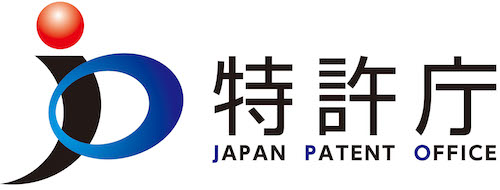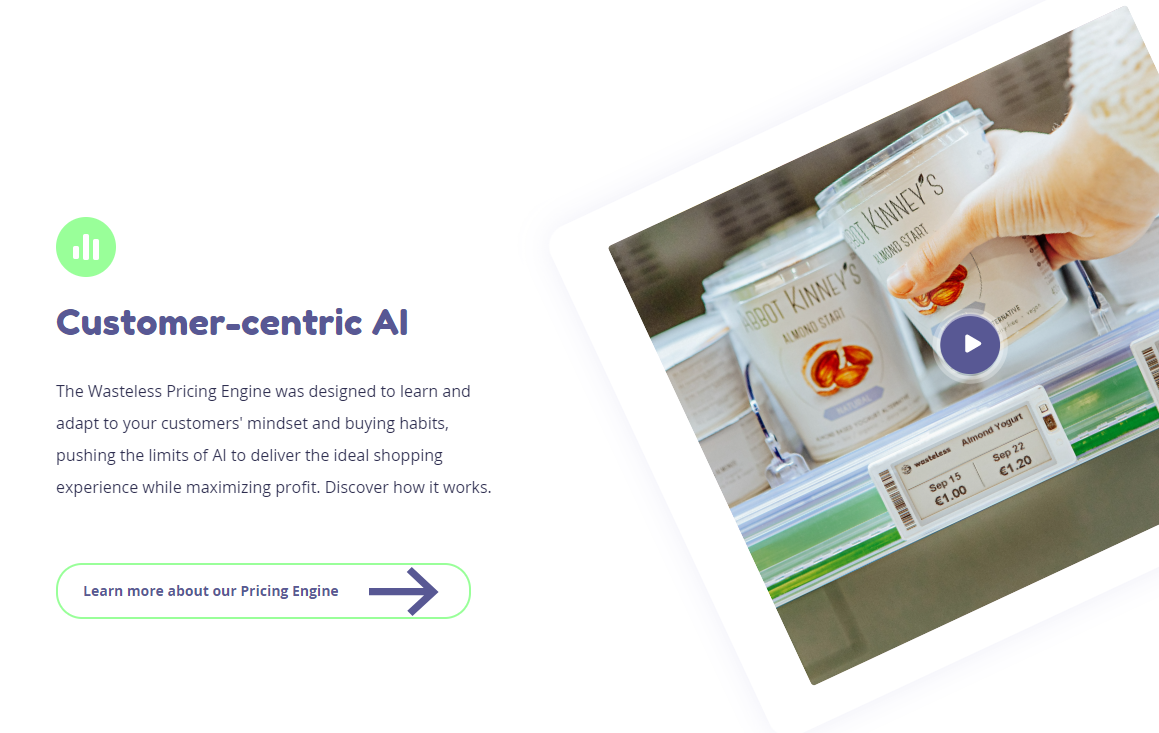IP BASE English Page
Wasteless 創業者兼CEO オデッド・オマール(Oded Omer)氏インタビュー/Interview with Wasteless Founder & CEO, Mr. Oded Omer
前時代的な値引きシールをAIでアップデート 食品ロス問題を解決する/Wasteless The End of the Prehistoric Discount Sticker - Wasteless and its AI-Powered Food Waste Solution
スーパーやコンビニなどの小売店で賞味期限/消費期限間近の商品が次々と廃棄される「食品ロス」。その課題に真正面から取り組み、利益につながる形で解決しながら消費者にとってもプラスになる、そんなソリューションを提案、提供するイスラエル発のスタートアップが、Wastelessだ。自身の経験をうまく起業に活かした同社の創業者兼CEOのオデッド・オマール氏に、起業までの道のりや特許に対する考え方などを伺いました。
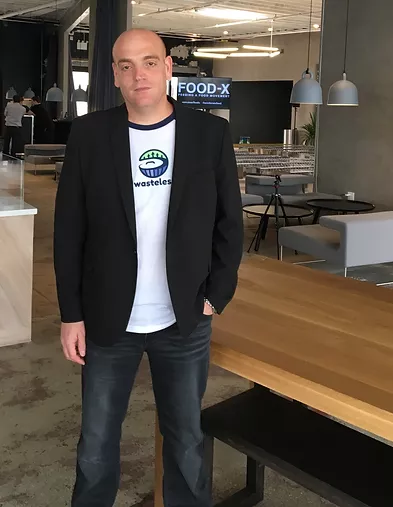
Wasteless Ltd 創業者兼CEO オデット・オマール(Oded Omer)氏
創業以前は、Transtech & Xsight Systemsで、滑走路の衝突回避・障害物検知システム用のデジタル信号処理(Digital Signal Processing)を開発。開発者としてのキャリアを経て、画像処理をベースとした小売店向け分析システムであるSILVIを設立。またビール業界向けのビッグデータと IoT の企業として有名で成功した Weissbeerger の CTO であり、小規模な創業チームの一員でもあった。
前時代的な値引きシールは小売店の利益にならない
夕方6時過ぎにスーパーへ行くと、大量の値引きシールを持った販売員が鮮魚コーナーやお弁当コーナーなどに現れ、刺身パックや弁当にペタペタとシールを貼り始める。生鮮食品だけでなく店内を見渡せば、「本体価格より30円引き」などと書かれたシールが消費期限の近い商品に貼られている。スーパーにとっては食品廃棄にかかるコストを削減するための取り組みのひとつも、消費者にとってはお財布に優しいサービスだ。
だが、この仕組みは約半世紀前から存在する前時代的なシステムで現代に見合わないとWastelessのオデッド・オマール(Oded Omer)氏は一刀両断する。
「食品廃棄物をなくす方法として、値引きシールを積極的に貼っている小売店は多い。だが、一律値引きは収益の観点で決してプラスにはならない。4割引のシールが貼られるまでの期間、消費期限または賞味期限が近い商品は収益化の機会を逃し続けるからだ」(オマール氏)
その他の解決方法として、サプライチェーンを最適化して食品補充プロセスを徹底的に改善する方法が考えられる。しかし、タイムリーに小売店へ商品が届くだけでは根本的な解決にならない。消費者は新しく到着した商品を棚奥から引きずり出して、レジに持っていくだけだ。小売店がいわゆる上流の流通面に縛られる現状は変わらず、結局は販売員が値引きシールを貼るしかなくなる景色は、日本だけのものではない。
であれば、消費者の目線に立って考えてみよう。そう思い立ち、発想を思い巡らせて立ち上げたのがWastelessだったという。
Wastelessは、賞味期限の近さに応じて商品の価格を自動で調整するソリューションを開発した2017年創業のスタートアップだ。同社は、旧来の生鮮品のバーコードに代わって、通信規格を内蔵した電子棚札(Electronic Shelf Labels)に最新価格を表示する日付対応バーコードでのソリューションを提供。機械学習によって最適化された価格表示のアルゴリズムは、自己学習、自己改善を行なうほか、多数のパラメータによって強化されており、小売店が高収益を上げられるよう適切な価格設定を自動で設定できる。
ポイントは、“期限間近の商品”ではなく”お得な価格設定の商品”として購入の動機付けを促す点だ。期限の短い食品に最適な値付けをすることで食品ロスを減らし、利益率をあげることができるのは、小売店と消費者の双方にとってメリットのある仕組みと言える。
値引きシールは隠れたコスト 実験では食料廃棄量32.7%減、収益6.3%増を成功
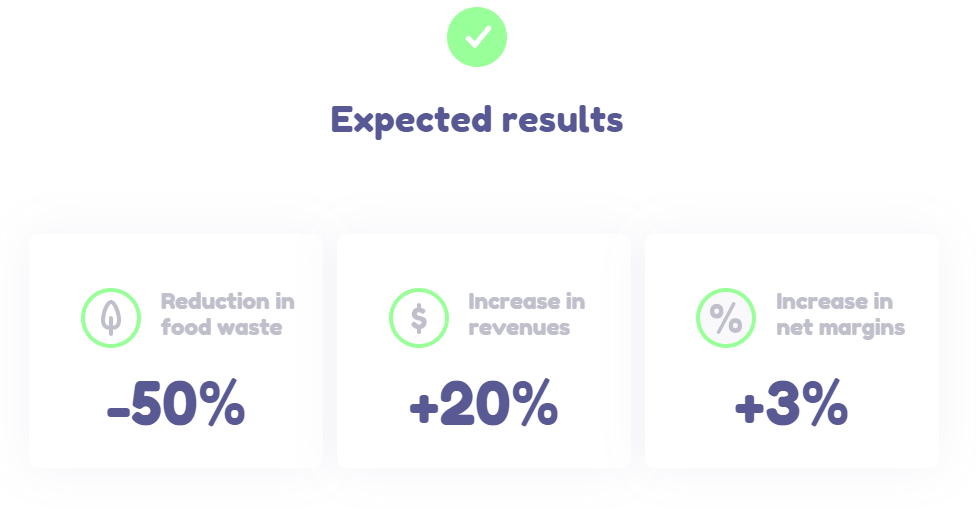
オマール氏は以前、イスラエル航空業界に10年以上籍を置き、A-SMGCS(先進型地上走行誘導管制システム)の開発や、滑走路上の異物を検知するシステムの開発などに携わっていた。その後、2010年にイスラエルでは初となる、ショップ向けの画像処理アルゴリズム開発会社を同僚とともに創業。2年弱で売却したのち、Omer Agiv氏・Ori Fingerer氏が創業したスタートアップWeissbeergerにCTOとしてジョイン。
ビアサーバに高精度センサーを搭載し、ビールの消費量などのデータを収集して分析、流通やマーケティングに活かすためのSaaSを開発し、ヨーロッパや南米、アジアなど20以上の地域で展開するなど大きな成功を収めた。同社はのちに世界的な酒類メーカーのアンハイザー・ブッシュ・インベブ(AB InBev)が買収。しかし、「ジェットコースターのような刺激的な人生を歩みたい」とオマール氏は退職。これまでの経験を活かして新たに起業する道を探ることにした。そしてたどり着いたのが、食品ロス問題を解決するソリューションの開発だった。
4か月以上の調査を経て、オマール氏はダイナミックプライシングに可能性を見出した。「米国では約40%の食品が食べられないまま廃棄されていると言われている。これは酷い話だ。以前在籍した会社で扱っていたダイナミックプライシングの知見を、生鮮食品の利益確保に活かせないかと考えた」(オマール氏)
構想を煮詰めていったオマール氏は、「2日後に消費期限を迎える挽肉に、販売初日と同じ価格をつける必要はない」という、シンプルな基本原則を決めた。このアイデアを片手に仲間を集め、さまざまなVCを前にピッチを行い、2017年にテルアビブにてWastelessを立ち上げた。ここまでで800万ドルを資金調達し、現在はテルアビブ本社のほか、アムステルダムとニューヨークにオフィスを構える。サービスとしても、ドイツ大手スーパーチェーンMETROやポーランドのMakroなどで採用されている。
「値引きシールは隠れたコストだ。あるスーパーチェーンのCFOに、2.5~4%程度の食品廃棄率よりも、現場の判断で価格が設定される旧来の値引きシールによる安売りで生じる損失の方が大問題と言われたことがある。そこに切り込むのがWastelessだ」。実際、同社はイタリアの小売チェーン店でのプロジェクトで、40%近くの廃棄物を削減し、売上を20%近く増加させることに成功したという。この成果や事例は、デロイト・イタリアでも報告されている。なお、現在のWasteless導入による廃棄物削減実績は、対象となる品揃えにもよるが、50%~90%となっているようだ。
取り組みを広げるために、POSや電子棚札(ESL)企業とのパートナーシップにも積極的だ。2週間程度で試験導入できるシステムの軽さも評価されており、フランスやイギリス、中国、スウェーデンなどのESL企業5社と提携している。
「欧州はサステナビリティの意識が高いこともあって、弊社ソリューションに関心を示すところが多い。ダイナミックプライシングについては導入が進んでいるようだが、ESLと組み合わせるというところまで至っていないことが多い。シール印刷機などの設備投資を無駄にしたくないのか、費用対効果をあまり感じないのか、理由はわからない」。そう述べるオマール氏は、それでも最近は米国でも意識の変化を感じており、さらに一歩進んだ展開が期待されると述べる。「市場が真に変化するのはいつも、消費者の意識が変わるときだ」
特許は資金調達に有効なツール、特許事務所とも良好な関係を構築
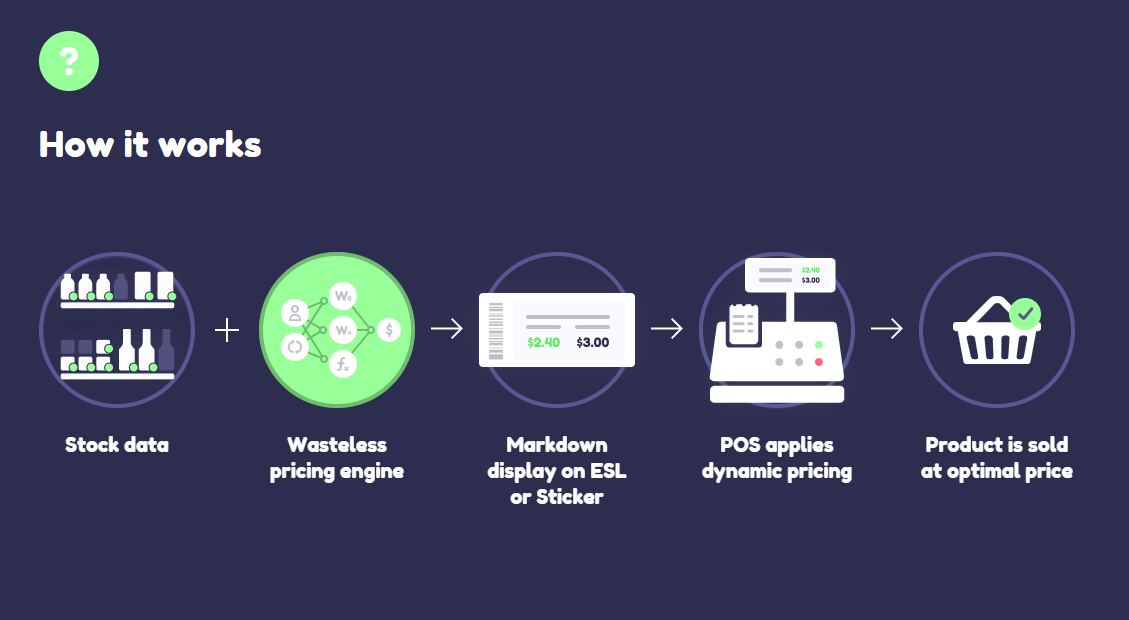
このようなWastelessの展開において、知財も有効なツールになっているとオマール氏。特許出願については、テクノロジーや権利を守るものであると同時に、投資家やVCへのアピール・信頼獲得で有効だと現実的だ。
これまでオマール氏自身も60件以上の特許仮出願、その半数の本出願をこなしてきたという。特許申請のきっかけは、「アイデアはあるけど金はない」スタートアップの資金調達の手段としてだ。手探り状態で勉強する中で、特許は企業にとって良い資産になることを学びながら、気付いたら60件を超えていたという。
Wastelessも、創業時に特許仮出願を1件行った。「これで10万ユーロの資金調達に成功した」とオマール氏は話す。現在はビジネスモデル特許含め6件を出願しており、PCT出願(国際特許出願)もしているという。また、ブランドとマーケティング活動を保護するために、さまざまな商標保有も進めている。
こうした取り組みを確実に実践していく上で、法律関係の専門家とのコネクションの重要性を同氏は協調する。「私が雑に書いた仮特許の下書きを清書してくれる」と笑うオマール氏は、さまざまな事務所と費用面を含めて話し合ったうえで、ニューヨークに居を構える特許事務所と創業前から付き合っているという。
「決め手は、技術に強く、何よりも我々の事業に関心を持ち、やる気のある態度で親身になってくれる弁理士がいたことだ。大抵の弁理士は、大量の案件を事務処理的にこなすだけの人が多い。そのため、事業内容をよく理解しておらず、2秒おきに『ところで御社は何をしている会社でしたっけ?』と聞いてくるような人は合わない(笑)」(オマール氏)
夢はつかみにいくもの
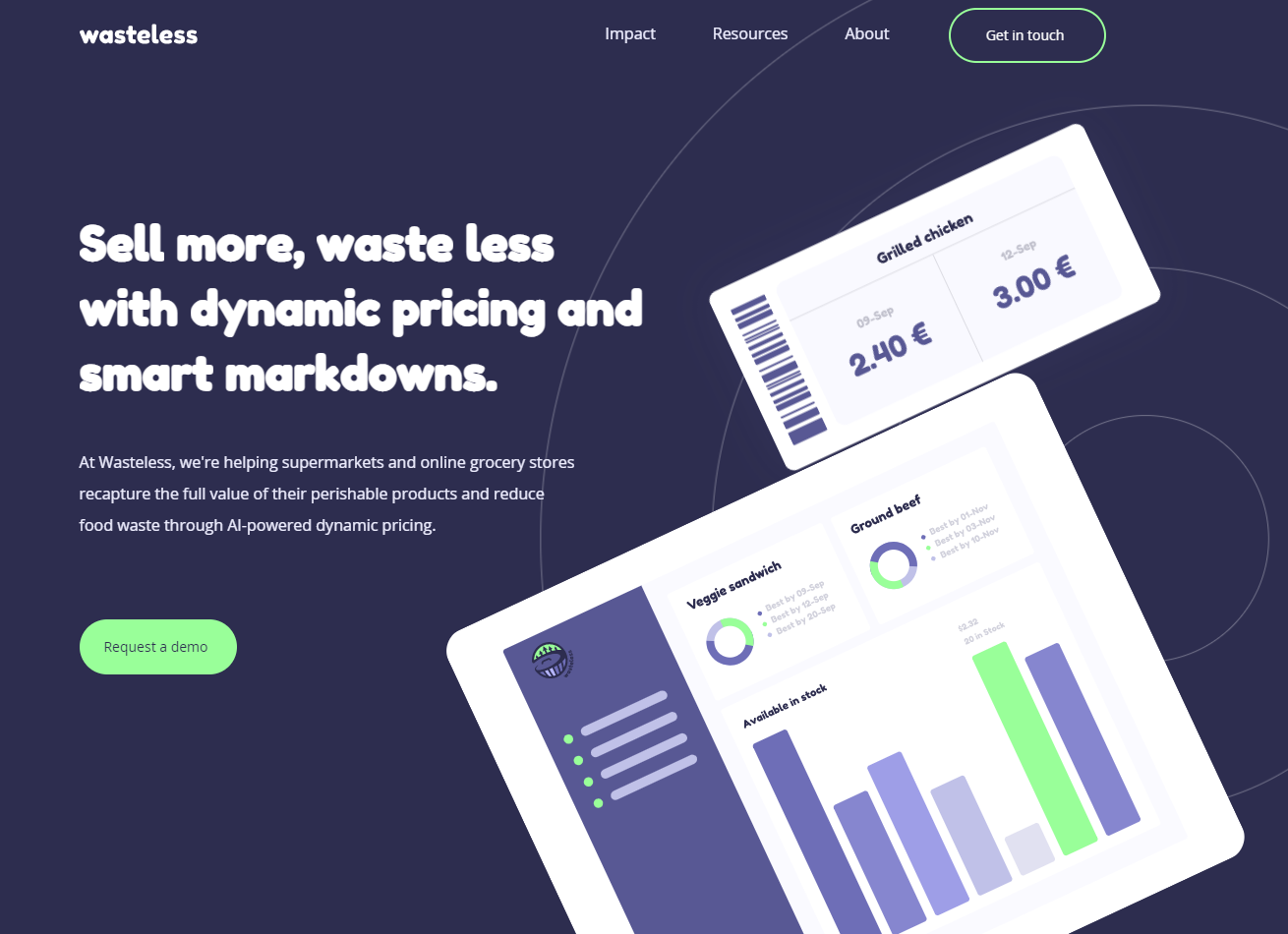
登録商標もWastelessでは重要なポイントだ。「創業時にwasteless.comのドメインを取得しようとしたところ、大手企業が複数取得している.comドメインに含まれており、登録できなかった。だが、登録商標を獲得していることを仲裁センターに出向いて説明したところ、最終的にはドメインを獲得することができた」。会社の認知度を高め、浸透させる上でドメインは大切だ。ビジネスの基盤を固めるためにも、制度をうまく活用していく機転がスタートアップには必要のようだ。
もっとも、特許出願にはそれなりの期間と予算が必要で、特許侵害された場合の訴訟費用もバカにならない。基礎出願からPCT国際出願、調査や審査を経て30か月後にようやく各国の特許庁の審査に入るというタイムラグは、初速をくじくデメリットだとオマール氏は言う。「イスラエルのスタートアップがアメリカで起業するのは、こうしたタイムラグを避けて主市場に乗り込むためだ」
余談だが、Wastelessが最初に取得した特許は日本の大手メーカーが一時期、譲渡に関心を示したとオマール氏は思い起こす。内容は、消費期限など各種項目をRFIDタグに入力し、それを商品に貼り付けるタグ付けガンを作るといったものだ。ダイナミックプライシングでのソリューション検討の中で、Wastelessの特許に目がとまったと考えられる。現在はその特許が重要ではなくなっているようだが、スタートアップであっても大手企業は特許に目を光らせていることがわかる。
今後についても、「次の資金調達ラウンドでは、アジア・パシフィック地域でも事業を本格展開する」と述べるオマール氏。また、同業他社とのコラボレーションについては「まだ食品ロス問題へのソリューションを提供する業界/市場は導入期にあり、時期尚早」としながら、数年先には日本でのコラボレーションが実現しているかもしれないと期待を込めた。
Food wastage plagues supermarkets, convenience stores, and other retail stores, where products nearing or expiring their best-before dates get discarded. This issue is being tackled head-on by the Israeli startup Wasteless, and not only that - their solution is both profitable to businesses and beneficial to consumers alike. We interviewed the CEO of Wasteless, Oded Omer, who has used his extensive experience to found his own company. We learned about his path to entrepreneurship and heard his perspective on patents.

Founder and CEO of Wasteless, Ltd., Oded Omer. Previously he worked at Transtech & Xsight Systems, developing the Digital Signal Processing (DSP) for collision avoidance & obstacle detection systems for runways. Following this illustrious engineering career, he went on to found SILVI, a retail analytics system for retail stores that is based on image processing. Oded was CTO and part of the small founding team of Weissbeerger, that became well-known and successful big data and IoT company for the beer industry.
How Dated Discount Stickers Disadvantage Retail Stores
If you go to the supermarket after 6 pm, you will likely see an employee attaching many discount stickers to foods, like the sashimi corner and the bento (lunchbox) corner. It’s not only fresh fish foods that receive the discount treatment - look around the store - you are bound to find a variety of products that are 30 yen off, for example. For supermarkets, this is a way to minimize the cost of food disposal. For the consumer, it’s a small favor to their wallet.
However, according to Wasteless and their CEO, Oded Omer, this is an outdated method that has no place in the modern-day.
“So many retailers actively apply discount stickers as a way to eliminate food waste, but these blanket discounts are never ideal from a profitability standpoint. The products that are getting close to their best-before dates are missing out on monetization opportunities by not being fresh enough for the consumer to pay full price, while simultaneously not being ready for the full discount.” - Oded Omer
Other solutions could include optimizing the supply chain and improving the food-replenishment process. However, timely product delivery to retail stores alone does not fundamentally present a solution: consumers will opt to take the freshest product from the back of the shelf to the checkout. As such, retail stores being tied to upstream distribution are left unchanged, and eventually, shopkeepers will still need to attach discount labels to their products. This is not unique to Japan.
If that’s the case, it’s time to think about it from a consumer perspective. Hence, the idea for Wasteless was born.
Wasteless, a startup founded in 2017, has developed a dynamic markdown optimization solution that adjusts the cost of products according to the proximity of their expiration dates. The company uses a solution in which date enabled barcodes are replacing the old scheme barcodes on fresh products, and up-to-date prices are displayed on Electronic Shelf Labels (ESL). This Deep ML Markdown optimization algorithm is self-learning, self-improving one. It is also strengthened by many parameters that grant the retailers with the ability to deploy smart markdowns that are adjusted automatically and help drive higher profits for the business.
The main point is to help motivate shoppers to buy products 'at a bargain,' rather than 'nearing expiration.' Increasing profits and minimizing waste by the optimization of food pricing is beneficial not only to the profits of retailers but also to cost-cutting shoppers.
Traditional Discount Stickers and their Hidden Cost: Experiments Reduce Waste by 32.7% and increase profits by 6.3%

Previously, Mr. Omer was a part of the Israeli air industry for over 10 years, where he was involved in the development of A-SMGCS (Advanced Surface Movement Guidance and Control Systems) as well as a system to detect any foreign objects that could be left on airport runways. In 2010, Omer shifted gears and, alongside a colleague, he founded Israel’s first retail-focused image processing algorithm company. The company sold in just two years, leading him to join Omer Agiv and Ori Fingerer - the founders of Weissbeerger as their CTO.
Weissbeerger is a highly successful SaaS to support distribution, quality, tracking and marketing of beer and has deployed in over 20 territories in Europe, South America, & Asia. By using high-precision sensors on beer taps, data such as beer consumption is collected and analyzed. The company was later acquired by brewer AB InBev (Anheuser-Busch InBev). Omer had other plans; “I wanted to live my life more like a rollercoaster.” With that, he went on to use his passion for tech and experience to explore a new way of starting an impact business. That’s when he decided to tackle the development of a solution to food wastage.
After more than four months of research, Omer saw the power and possibilities of dynamic pricing. “It’s said that in the US, about 40% of food goes uneaten.That’s absurd. I thought, why don’t I use the dynamic price models I already know from my previous companies to regain profits from not-the-freshest (we call it ‘vintage’) food.” - Oded Omer
After refining this concept, Omer concluded with a simple principle: “there is no reason to pay the same price for a pack of ground beef that expires in two days versus the first day of sale” (an example). Taking this idea, he gathered some partners, began pitching to several investors., and launched Wasteless in Tel Aviv in 2017. As of writing, the company has raised over 8 million dollars in funding, and in addition to the current head office in Tel Aviv, they have commercialization offices in both Amsterdam and New York. The service itself has also been adopted in large supermarket chains such as METRO in Germany and Makro in Poland.
“Markdown has a hidden cost. If you ask a CFO of a supermarket chain, they’ll tell you that the loss caused by a food waste rate of 2.5~4% is added to another big problem of the old way of using “guestimated” discount stickers. That’s where Wasteless comes in.” In fact, Omer presented that the company has successfully reduced waste by almost 40% and increased revenue by almost 20% in a project at an Italian retail chain. These results and the case study were reported also by Deloitte Italy. Wasteless’ current results for waste reduction nowadays are 50%-90%, depending on the covered assortment.
To expand their efforts, they are actively partnering and integrating with POS and ESL (Electronic Shelf Label) companies. The system also has a lightweight version that can be implemented on a trial basis in about two weeks. This ease of use has led to partnerships with five ESL companies in France, UK, China, Sweden, etc.
“European consumers are very aware of the importance of sustainability, so there is a lot of interest in our solution there. Dynamic pricing itself has been introduced, but it has yet to be used in conjunction with ESL in many cases. I can’t tell if it is because they don’t want to invest in the sticker technology or if it just doesn’t have a good ROI to them.” Despite this, Omer states he has seen an attitude shift in the US recently and expects to see further developments soon. “Whenever there is a change in attitudes, it drives market change.”
Patents: An effective tool for fundraising and relationship building with patent firms

Throughout the development of Wasteless, intellectual property has also been an effective tool in their belt, according to Omer. As for patent applications in particular, not only is it a vital element to the protection of technology and rights, Omer confesses that they are also effective in appealing to investors and VCs and building their trust.
Omer has himself filed over 60 patent applications, with over half of those applications being granted. It can be effective for those who ‘have an idea but lack the funds’ in startup formation. Through his own experience, he has learned firsthand the value of a good patent as an asset for a company.
Wasteless also filed a provisional patent upon its founding. “Wasteless then had raised 100,000 Euros in funding with this patent,” Omer stated. Now, the business has worked on expanding this portfolio of applications with six patents, including a business model patent, and has filed a PCT (Patent Cooperation Treaty, an international patent system) application. The company also hold various trademarks to protect the brand and marketing activity.
Omer emphasizes the importance of connecting with legal professionals in this process to ensure the efforts are implemented. “I get our lawyers to clean up the rough drafts of my provisional patents,” he laughs. Finding the correct lawyers at the right price is vital too. Omer looked at and spoke to a variety of firms before finding his match in New York prior to the company being founded.
“The deciding factor for us was a “can-do” approach and a tech-savvy lawyer and, above all, someone who was interested in our business and willing to help. Many patent attorneys are only capable of churning out patent after patent, handling a large number of patents in an administrative capacity. So if they don’t know the business well, every two seconds they ask ‘oh by the way, what does your company do?’ Those kinds of lawyers are not a good fit for Wasteless,” he laughs.
Dreams are made to be seized

Registered trademarks are also an important point to Wasteless. “When we founded the company, the domain 'wasteless.com' was already registered, since '.com' domains are often taken by large companies. However, once we were able to prove that we owned the trademark we were able to acquire the domain in the end.” Domains are integral to raising brand awareness and aiding market penetration. To solidify a business's foundations, tactful usage of these systems seems to be essential for startups.
However, that is not to say patent applications are, of course, not without their costs to your time and budget. The potential cost of litigation could also be ridiculous. Omer states that the initial pace of a startup can be slowed down dramatically since the process from the initial local patent to the PCT application and examination can take over 30 months before it finally starts examination in the target country. “One of the reasons Israeli startups get their footing in the US is to avoid this time lag and enter the main market faster.”
As an aside, Omer remarks how the first patent granted to Wasteless, a patent that is less relevant to the company now, saw great interest by a major Japanese manufacturer at one point to transfer the patent to them. The idea was to create a gun that would attach RFID tags to products that contained information such as expiration dates. It is thought that they may have caught wind of Wasteless’ patent while researching their own dynamic pricing solution. Unfortunately, the transfer did not work out in the end, but it signifies that even for startup-held patents, major companies are always keeping a close eye on them.
Looking to the future, “following the next funding round, we would expand our business to the Asia-Pacific Region,” stated Omer. As for collaborations with other companies, “the industry/market solutions to the food waste problem are still early days - it is too early to tell.” Omer still expresses hope for the potential of collaborations in Japan in the coming years.
